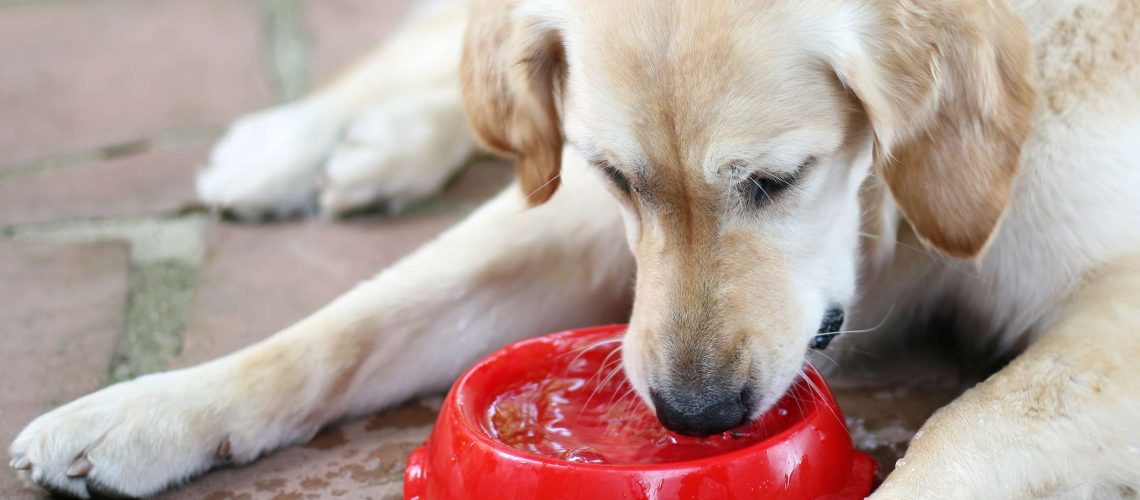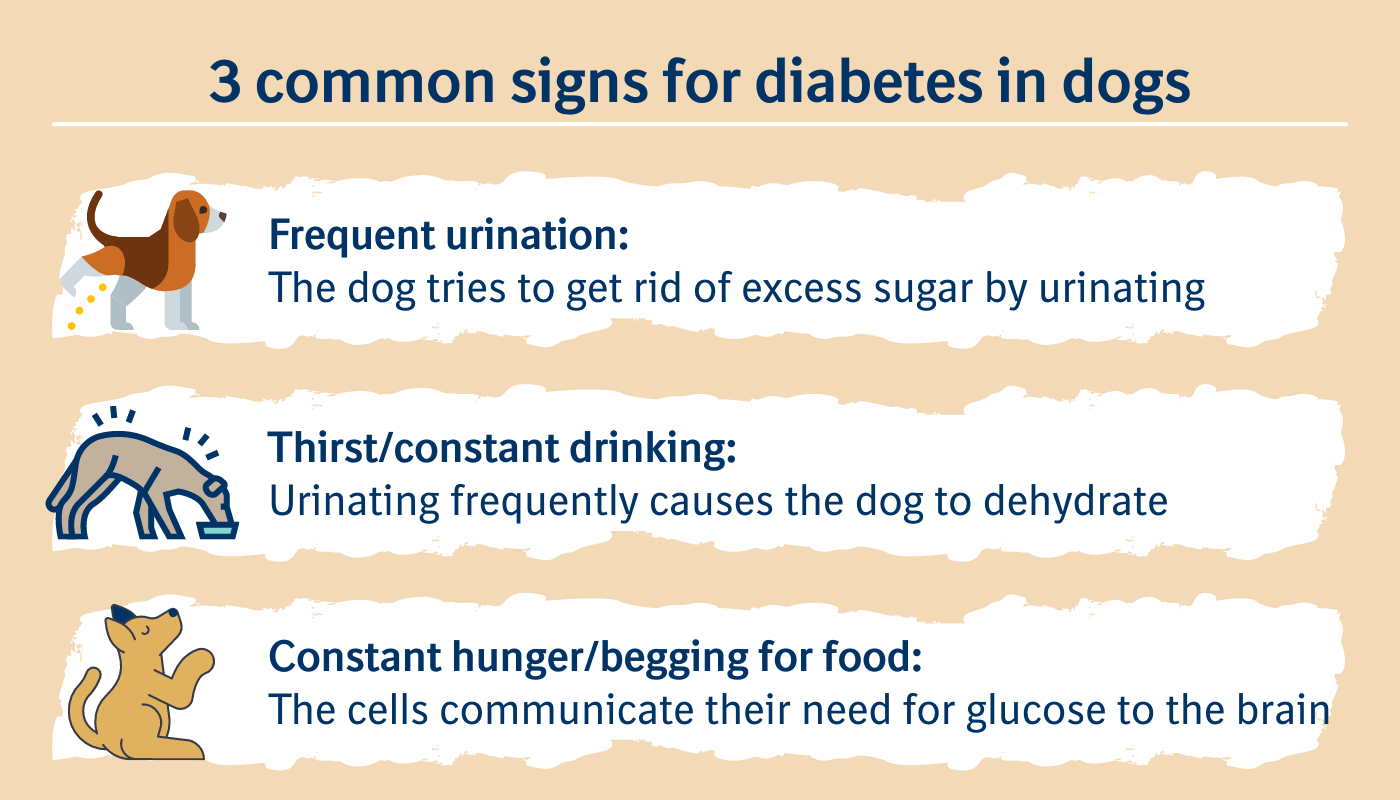Key Takeaways:
- Increased water intake in senior dogs can be a sign of various health issues.
- Excessive thirst may indicate kidney disease, diabetes, or Cushing's disease in older dogs.
- Aging can affect the dog's ability to regulate water balance, leading to increased drinking.
- Senior dogs should be monitored closely for any changes in their water consumption patterns.
- If a senior dog is drinking excessively, it is important to consult a veterinarian for proper diagnosis and treatment.
Introduction:
Are you a proud owner of a senior dog? Have you noticed that your furry friend has been drinking more water than usual? If so, you've come to the right place! Understanding why your senior dog is drinking a lot of water can provide valuable insights into their overall health and well-being. By delving into this subject, you'll not only gain knowledge about your beloved companion but also be equipped to address any potential concerns. So, let's dive in and uncover the reasons behind your senior dog's increased water intake – it's time to ensure their happiness and longevity!
Why is my older dog drinking more water than usual?
If you've noticed that your older dog is drinking more water than usual, it may be a sign that something is going on with their health. As dogs get older, their bodies can undergo changes that affect their thirst levels. It's important to pay attention to these changes and take action if necessary.
There are several possible reasons why your senior dog may be drinking more water:
Possible reasons for senior dogs drinking a lot of water
- Dehydration: Older dogs can become dehydrated more easily, especially if they have underlying health conditions or are taking medications that increase their urine output.
- Kidney problems: The kidneys play a crucial role in regulating the body's fluid balance. If your dog's kidneys aren't functioning properly, they may drink more water to compensate.
- Diabetes: Just like humans, dogs can develop diabetes as they age. Increased thirst is one of the common symptoms of diabetes in dogs.
Excessive thirst in older dogs as a sign of health problems
Excessive thirst, also known as polydipsia, can be an indication that something is not right with your senior dog's health. It's important to monitor their water intake and look out for other signs of illness. If your dog is also urinating more frequently or experiencing weight loss, it could be a sign of an underlying medical condition.
Medical conditions causing increased water intake in senior dogs
There are several medical conditions that can cause increased water intake in senior dogs:
- Cushing's disease: This condition occurs when the adrenal glands produce too much cortisol hormone. Increased thirst is one of the symptoms of Cushing's disease.
- Hypercalcemia: When the calcium levels in a dog's blood are too high, it can lead to increased thirst and urination.
- Urinary tract infection: Infections in the urinary tract can cause dogs to drink more water as their bodies try to flush out the bacteria.
What to do if your elderly dog drinks excessive amounts of water
If you notice that your senior dog is drinking excessive amounts of water, it's important to consult with your veterinarian. They will be able to perform a thorough examination and run any necessary tests to determine the underlying cause. Depending on the diagnosis, they may recommend specific treatments or lifestyle changes to manage your dog's condition.
Dietary and lifestyle changes to manage excessive thirst in senior dogs
In some cases, making dietary and lifestyle changes can help manage excessive thirst in senior dogs:
- Switching to a low-sodium diet: If your dog has kidney problems, reducing their sodium intake can help regulate their fluid balance and decrease their thirst.
- Providing fresh water at all times: Make sure your dog always has access to fresh, clean water. This will encourage them to drink regularly and stay hydrated.
- Scheduling regular bathroom breaks: Taking your dog out for frequent bathroom breaks can help prevent accidents and ensure they are able to empty their bladder properly.
Tips for monitoring and regulating your senior dog's water intake
To monitor and regulate your senior dog's water intake:
- Keep track of how much water they are drinking each day. This will help you identify any sudden increases or decreases in their intake.
- Divide their daily water allowance into multiple smaller servings throughout the day. This can help prevent them from drinking too much water at once.
- Consider using a timed water dispenser that releases water at set intervals. This can help regulate your dog's access to water and prevent excessive drinking.
Possible reasons for senior dogs drinking a lot of water
As dogs age, their bodies undergo various changes that can lead to increased water intake. One possible reason for senior dogs drinking a lot of water is kidney disease. The kidneys play a crucial role in filtering waste products from the blood and regulating fluid balance in the body. In older dogs, the kidneys may not function as efficiently as they used to, causing them to drink more water to compensate for the decreased ability to concentrate urine.
Another reason could be diabetes. Just like humans, dogs can develop diabetes as they get older. Diabetes affects the body's ability to regulate blood sugar levels, leading to increased thirst and urination. If your senior dog is drinking excessive amounts of water and also displaying other symptoms such as weight loss or increased appetite, it's essential to have them checked by a veterinarian for proper diagnosis and management.
Excessive thirst in older dogs as a sign of health problems
In some cases, excessive thirst in older dogs can be an indication of underlying health problems. One potential cause is Cushing's disease, also known as hyperadrenocorticism. This condition occurs when the adrenal glands produce too much cortisol hormone, leading to increased thirst and urination. Other symptoms may include hair loss, pot-bellied appearance, and increased panting.
Additionally, certain medications or treatments can cause excessive thirst in senior dogs. For example, if your dog is on long-term steroid therapy or undergoing chemotherapy, these treatments can affect their fluid balance and result in increased water intake. It's important to consult with your veterinarian if you suspect any medication-related side effects contributing to your dog's excessive thirst.
Medical conditions causing increased water intake in senior dogs
Several medical conditions can cause increased water intake in senior dogs. One common condition is chronic kidney disease (CKD). As mentioned earlier, CKD affects the kidneys' ability to filter waste products and maintain fluid balance, leading to increased thirst and urination. Other symptoms of CKD may include weight loss, decreased appetite, and lethargy.
Another medical condition that can cause excessive thirst is hyperthyroidism. This condition occurs when the thyroid gland produces an excess amount of thyroid hormone. In addition to increased water intake, hyperthyroidism in dogs can also cause weight loss, increased appetite, restlessness, and a rapid heart rate. It's crucial to have your senior dog evaluated by a veterinarian if you suspect any underlying medical conditions contributing to their excessive thirst.
What to do if your elderly dog drinks excessive amounts of water
If your elderly dog is drinking excessive amounts of water, it's important not to ignore this behavior as it could be a sign of an underlying health issue. The first step is to schedule a visit with your veterinarian for a thorough examination. The vet will likely perform blood tests and urine analysis to identify any potential medical conditions causing the increased water intake.
In the meantime, it's essential to ensure that your dog has access to fresh and clean water at all times. You may need to refill their water bowl more frequently or consider using a larger water container if they are drinking excessively. It's also important to monitor their urination habits and report any changes or abnormalities to your veterinarian during the examination.
Dietary and lifestyle changes to manage excessive thirst in senior dogs
Managing excessive thirst in senior dogs often involves making dietary and lifestyle changes. Your veterinarian may recommend switching your dog's diet to a low-sodium or kidney-friendly formula if kidney disease is diagnosed. These specialized diets help support kidney function and reduce the workload on the kidneys.
In addition to dietary changes, your veterinarian may also suggest medications or supplements to manage underlying medical conditions contributing to excessive thirst. For example, if your dog has diabetes, insulin therapy may be necessary to regulate blood sugar levels and reduce thirst. It's crucial to follow your veterinarian's recommendations and regularly monitor your dog's response to any prescribed treatments.
Tips for monitoring and regulating your senior dog's water intake
Monitoring and regulating your senior dog's water intake can help manage excessive thirst and ensure their overall well-being. Here are some tips:
- Keep a close eye on how much water your dog is drinking each day. Measure the amount of water you provide and note any significant changes in consumption.
- Divide their daily water intake into smaller portions throughout the day rather than providing all at once. This can help prevent excessive drinking due to dehydration or boredom.
- If necessary, use a larger water bowl or consider using an automatic water dispenser that ensures a constant supply of fresh water.
- Monitor your dog's urination habits for any changes in frequency or volume. Report any abnormalities to your veterinarian during check-ups.
- Avoid restricting access to water unless specifically advised by your veterinarian as it can lead to dehydration and other health issues.
By closely monitoring and managing your senior dog's water intake, you can help ensure their hydration needs are met while addressing any underlying health concerns that may be causing excessive thirst.
In conclusion, senior dogs may drink more water due to various reasons such as medication side effects, kidney problems, or diabetes. It is important to monitor their water intake and consult a veterinarian if excessive drinking persists.
Why is my old dog suddenly drinking so much water?
Increased thirst in a dog can indicate various health problems, ranging from minor issues like an upset stomach with vomiting and diarrhea to more severe conditions such as cancer, fever, liver disease, or infection. It is crucial to be familiar with your dog's normal behavior in order to provide them with proper care.
Do dogs drink more water in old age?
Senior dogs may also have increased water intake due to several common medical conditions associated with old age. It is important to monitor your dog's water consumption and seek advice from your veterinarian if you believe they are drinking insufficient or excessive amounts.
What age is a senior dog?
When small dogs are around 11-12 years old, they are considered senior dogs. Medium-sized dogs become seniors at around 10 years, while larger dogs are considered seniors at around 8 years. Giant-breed dogs are considered seniors when they reach 7 years old.
Why is my 13 year old dog drinking a lot of water?
If you observe that your older dog is consuming an increased amount of water, it could be due to various reasons such as kidney failure, diabetes mellitus, Cushing's disease, or dehydration. It is important to address these issues and schedule a visit to the veterinarian.
Why is my 12 year old dog drinking so much water?
There are various factors that can cause your dog to experience excessive thirst or dehydration, such as diabetes, Cushing's disease, cancer, diarrhea, fever, infection, kidney disease, and liver disease. However, in some cases, it may not be the underlying condition itself that is causing the excessive thirst, but rather the medication being used to treat it.
Why is my 15 year old dog drinking a lot of water?
If you observe that your older dog is consuming a large amount of water, it is vital to seek advice from your veterinarian to identify the cause and find the proper treatment. Various conditions like kidney disease, diabetes mellitus, urinary infections, Cushing's syndrome, and liver infections can lead to an increase in water consumption.

















